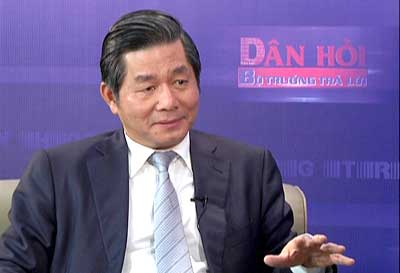Minister offers new FDI incentives

Minister of Planning and Investment Bui Quang Vinh in a television interview last week reaffirmed that the Vietnamese government would continue offering preferential incentives to foreign invested projects over the long term.
Vinh admitted Vietnam “is running slower” than Thailand and Indonesia in foreign direct investment (FDI) attraction. “Our investment climate is now less attractive than these countries. If we don’t grant incentives to foreign investors, they will leave,” said Vinh.
FDI to Vietnam in the first half of this year rose 5.6 per cent and 15.9 per cent in terms of disbursement and commitments respectively, which the minister said had not yet reflected the improvements in the investment climate. He referred to the challenges the country faced in terms of poor infrastructure and complicated administration procedures.
Although FDI flows rose, it had declined in relation to the total number of licenced foreign invested projects. According to the Ministry of Planning and Investment’s Foreign Investment Agency, foreign investors lodged 554 new projects and expanded 217 projects in the first half of this year, down 10.04 per cent and 29.1 per cent respectively. This meant Vietnam had experienced a decline in the number of foreign investors in the first half of this year.
According to a newly released FDI confidence survey by global market information firm A.T. Kearney, Vietnam dropped out of the top 25 most attractive FDI destinations rankings for this year, from 14th position last year. Meanwhile, other Southeast Asian countries including Thailand, Indonesia and Malaysia remained firmly ensconced in the table.
Vinh said the Vietnamese government recognised the nation’s disadvantages and had already adopted policies to encourage FDI flows into the country, citing the tax incentives available for expanded FDI projects that were approved by the National Assembly last month.
However, Vinh emphasised that the Vietnamese government would not grant incentives to all foreign invested projects.
“We intend to lure investments from multinational corporations who apply advanced technology, so these incentives will only be granted to high value-added projects,” he said.
“Incentives for FDI flows in sectors we’re not intending to encourage will be limited.”
Even though FDI commitments to Vietnam declined from the peak of $76.4 billion in 2008, Vinh believed the quality of FDI projects in Vietnam had improved notably with the investment expansion strategies of multinational corporations like Samsung Electronics, Nidec Corporation and Robert Bosch.
What the stars mean:
★ Poor ★ ★ Promising ★★★ Good ★★★★ Very good ★★★★★ Exceptional
Latest News
More News
- Vietnamese businesses diversify amid global trade shifts (February 03, 2026 | 17:18)
- Consumer finance sector posts sharp profit growth (February 03, 2026 | 13:05)
- Vietnam and US to launch sixth trade negotiation round (January 30, 2026 | 15:19)
- NAB Innovation Centre underscores Vietnam’s appeal for tech investment (January 30, 2026 | 11:16)
- Vietnam moves towards market-based fuel management with E10 rollout (January 30, 2026 | 11:10)
- Vietnam startup funding enters a period of capital reset (January 30, 2026 | 11:06)
- Vietnam strengthens public debt management with World Bank and IMF (January 30, 2026 | 11:00)
- PM inspects APEC 2027 project progress in An Giang province (January 29, 2026 | 09:00)
- Vietnam among the world’s top 15 trading nations (January 28, 2026 | 17:12)
- Vietnam accelerates preparations for arbitration centre linked to new financial hub (January 28, 2026 | 17:09)
















 Mobile Version
Mobile Version